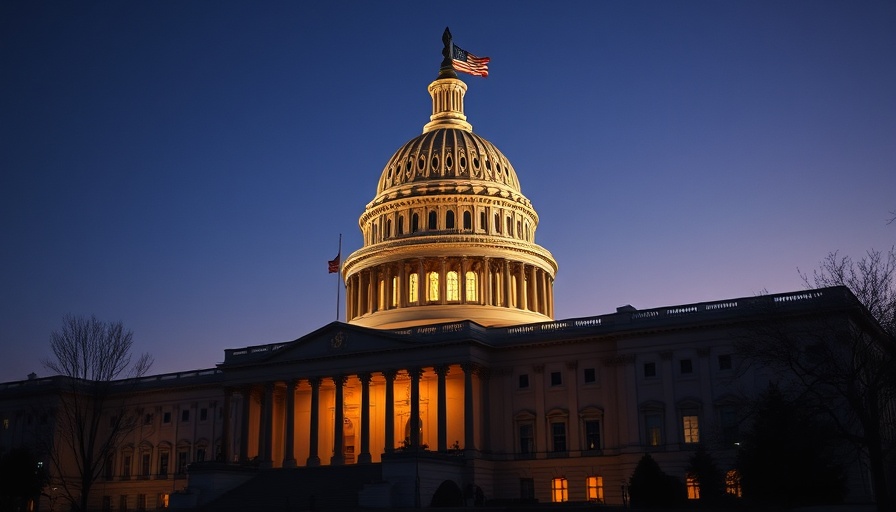
Understanding the GOP's Proposed Budget Cuts: A Threat to Healthcare
In a striking bid for financial restructuring, House Republicans have laid out a budget resolution that seeks a staggering $1.5 trillion in cuts, with healthcare, particularly Medicaid, poised to bear the brunt. In their proposal, $880 billion is flagged for the Energy and Commerce Committee, the body responsible for overseeing crucial welfare programs such as Medicare and Medicaid. Given that Medicaid serves nearly 80 million low-income Americans, the implications of these suggested cuts are severe.
The Realities of the Cuts
The GOP's focus on reducing federal spending comes amid broader significant tax plans that could range in cost from $5 trillion to $11.2 trillion over the next decade. As noted, the proposed cuts are likely to heavily impact Medicaid, a safety net program that is vital for countless families and seniors who rely on it for essential health services.
Advocates for social equity have raised alarms about the disproportionate effects these cuts could have on the most vulnerable, particularly the elderly who require long-term care. The impacts could ripple through communities that already face challenges in accessing healthcare.
Potential Changes In Medicaid
Rather than the drastic measure of implementing per-capita caps on Medicaid funding, the GOP may opt for policies requiring beneficiaries to demonstrate work participation, which could strip coverage from approximately 1.5 million individuals if confirmed. Additionally, the proposal to reduce federal matching rates for Medicaid payments raises further concerns about the sustainability of healthcare programs at the state level.
Broader Implications for Public Health
For consumers seeking alternatives for improving their health outcomes, the looming cuts in Medicaid funding signal a shift that could displace many individuals from necessary services, leading to an increase in uninsured Americans. As more people lose access to affordable health insurance, the demand on emergency services and community health providers is expected to escalate, producing a cycle of increased medical costs and decreased public health.
Your Voice Matters: A Call for Advocacy
Given the widespread concern about these budget proposals, it is critical for advocates of public health to mobilize and communicate with their representatives about the crucial need for safeguarding Medicaid and similar programs. The momentum of public opinion could make a difference in how these budget plans evolve. Staying informed and engaged can be vital in influencing the decisions that affect millions of Americans.
 Add Row
Add Row  Add
Add 




 Add Row
Add Row  Add
Add 



Write A Comment